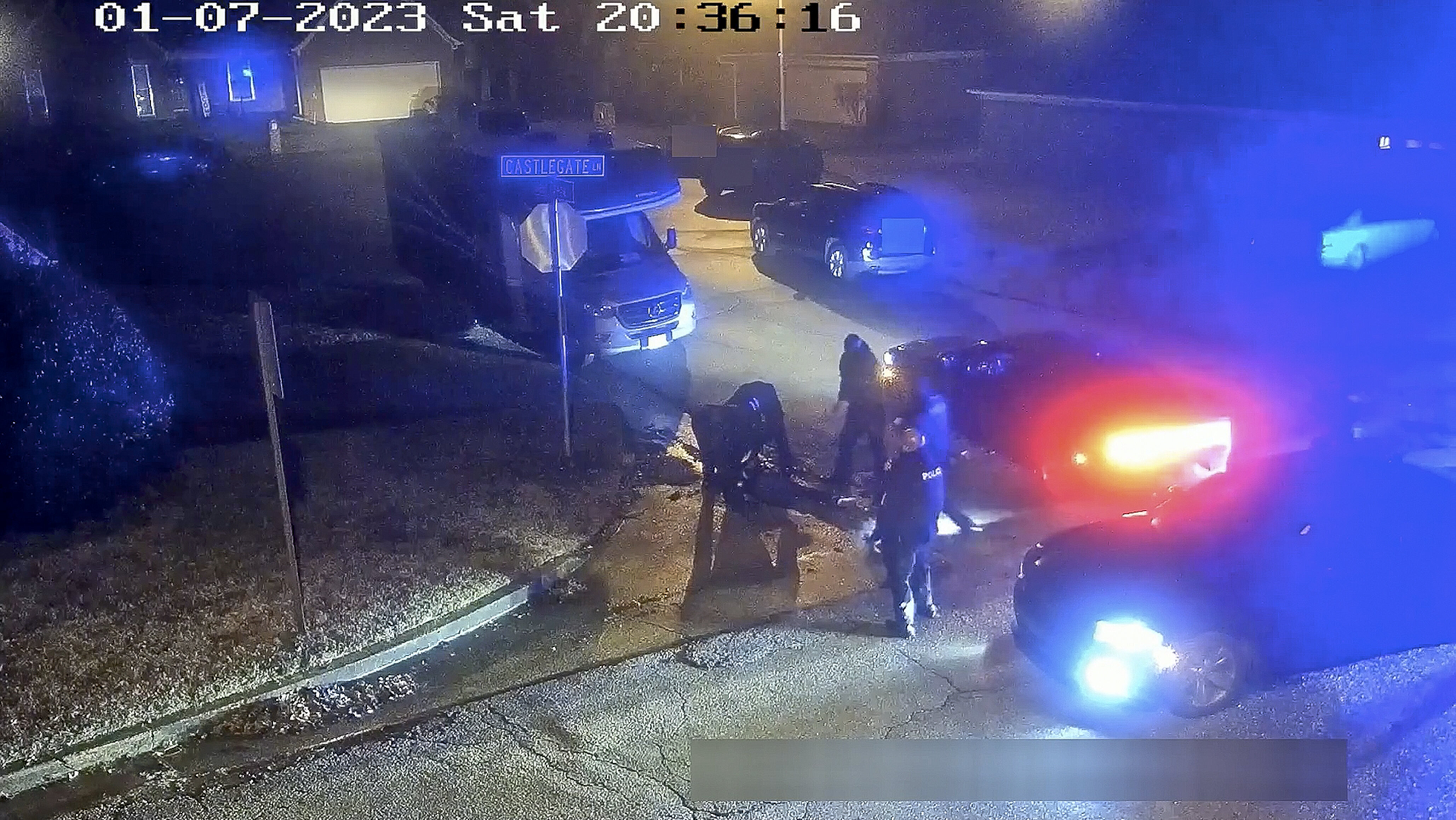
Multiple former Memphis police officers condemned the policing tactics of their own department during high-profile testimony this week in the federal trial against three officers who participated in the fatal beating of Tyre Nichols on Jan. 7, 2023, after a traffic stop. One officer spoke about the shame of his involvement in that attack.
Ex-Memphis police officer Emmitt Martin III said he could not “sit here and live with a lie” as prosecutors questioned him on why he decided to plead guilty to violating Nichols’ civil rights. Three of his colleagues did not and now stand trial: Tadarrius Bean, Justin Smith and Demetrius Haley are charged with civil rights violations and federal conspiracy charges.
Martin was one of two officers to plead guilty to charges just weeks before the start of the federal trial in Memphis; he pleaded guilty to excessive force and conspiracy to tamper with a witness. Former officer Desmond Mills pleaded guilty to charges of obstruction of justice and excessive force late last year.
“The truth needs to come out. It was eating me up inside,” Martin said on Tuesday, according to WHBQ-TV in Memphis.
Martin admitted to punching Nichols, a 29-year-old Black FedEx worker, several times and then said that Haley gave a “vicious” kick to Nichols and that Nichols looked “disoriented” after the beating, WHBQ reported. Nichols died three days later in a hospital.
Martin also told jurors during questioning that he took off his body camera and threw it on the ground during the assault because he did not want the incident recorded, WHBQ reported.
On Thursday, Kyle Coudriet, a former member of the department’s “Scorpion” unit, which patrolled high-crime “hot spots,” testified that he witnessed both Martin and Haley using excessive force on a different civilian, delivering punches to the face and chest.
Coudriet told jurors he covered his body-worn camera as Haley punched the man in the face but added he should not have done that, according to WREG-TV in Memphis.
“I was ashamed of not being able to stop the situation before it happened,” Coudriet said, WREG reported. “I anticipated the retaliation. I did cover my camera in a situation when I shouldn’t have.”
Neama Rahmani, a former federal prosecutor in Los Angeles, told HuffPost that the recent widespread use of body cameras has made it harder for police to obscure what happens in violent conflicts.
“It used to be very difficult to convict police officers of anything, especially in murder. Obviously, our culture has changed. The video evidence has changed, and police officers cannot lie anymore,” Rahmani told HuffPost.
He said he hoped that trials like the Nichols case would spur further change. “Whether it is training and more oversight, things have to change. They are going to have to pay out tens and millions of dollars,” he said.
The jury also heard jarring testimony this week from Haley’s girlfriend, Brittany Leake, who testified that Haley sent her a picture of Nichols after he’d been beaten. Leake, a current Memphis police officer, said she was on the phone with Haley on the night of the fatal incident.
After Leake received the photo, she told jurors, she responded with a text: “Oh my God, he needs to go to the Med,” according to The Associated Press.
Marco Ross, a medical examiner who wrote Nichols’ autopsy report, testified Friday that the young man would have been in a “vegetative state” had he survived the beating, WHBQ reported.
Haley, Bean and Smith all potentially face life in prison for violating Nichols’ civil rights if convicted. Mills faces up to 15 years in prison while Martin could get up to 40 years.
Disclaimer: The copyright of this article belongs to the original author. Reposting this article is solely for the purpose of information dissemination and does not constitute any investment advice. If there is any infringement, please contact us immediately. We will make corrections or deletions as necessary. Thank you.
